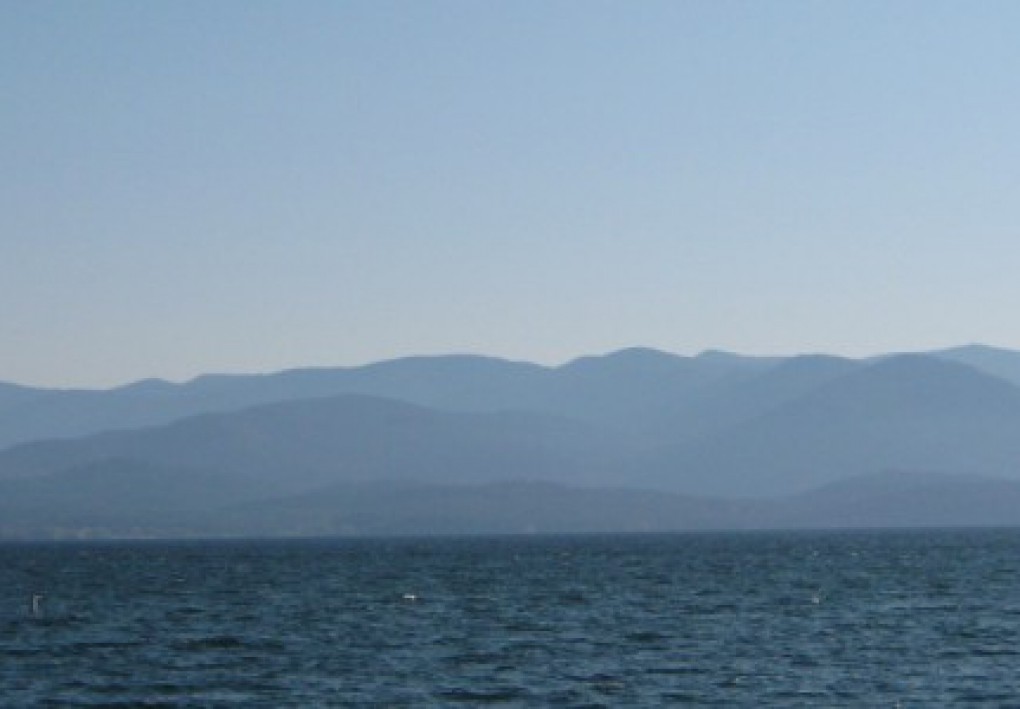This past March, U.S. Secretary of State John Kerry voiced befuddlement at Russian President Vladimir Putin’s aggressive behavior. “You just don’t in the 21st century…[invade] another country,” he declared on a Sunday talk show.
I am at a loss to explain Secretary Kerry’s strong conviction. Human nature did not change with the advent of the new millennium.
There will always be freeloaders wanting something for nothing, troublemakers sowing chaos, tyrants grabbing power, and bad actors taking things that don’t belong to them, such as other people’s property, freedom, and lives.
An adult endowed with a conscience understands that anti-social behaviors are wrong and tries to avoid them, but in order to stop a sociopath (who lacks any internal check), one must levy consequences so painful as to render the costs of bad behavior greater than the putative benefits. Like a headstrong two-year-old, a sociopath responds positively only to actions and not to words.
Is Putin a sociopath? He is known to have engaged in theft, murder, and extortion to achieve his goals both domestic and international. Yet, in the face of hard evidence to the contrary, Secretary Kerry behaves as though he believes that Putin can be reasoned with.
Weakness invites aggression. One sees the truth of this statement every day in the realms of parenting, sports, and international affairs — as well as in the animal kingdom. If one is unwilling or unable to meet affronts with costly consequences (i.e., if one is “weak”), aggressors will prevail.
Since 2008, Western leaders have opted to respond to Putin with strongly-worded statements, “targeted economic sanctions,” and diplomacy.
Meanwhile, Putin has:
- Successfully pressured the U.S. to cancel missile defense plans in Poland and the Czech Republic.
- Deployed Russian troops to occupy the Georgian territories of South Ossetia and Abkhazia.
- Thwarted the U.N.’s attempts to stop Iran’s efforts to obtain nuclear weapons.
- Supported Bashar al-Assad’s regime even as it murdered tens of thousands of Syrian citizens.
- Over many years, tested medium-range cruise missiles explicitly banned by a 1987 treaty.
- Directly and indirectly sponsored a Civil War in a sovereign country, Ukraine.
- Taken the Crimea from Ukraine, after sponsoring an “election” to decide Crimea’s fate.
- Supplied Ukrainian separatists with powerful surface-to-air missiles. Made it possible for the separatists to shoot MH17 out of the sky at the loss of 298 passengers and crew (along with several dogs and dozens of exotic parrots and other birds who were riding in the cargo hold).
- Expressed no remorse for the shooting down of MH17.
- Blamed the shoot-down on the Ukrainian government.
- Supported separatist warriors as they interfered with the MH17 crash site and denied international crash investigators’ access.
- Fired artillery from Russian territory into the Ukraine, which is an act of war.
Have the “consequences” imposed by Western leaders worked to deter Putin? Clearly not. Putin has acted with impunity, and many thousands of innocents have lost their lives.
Bullies like Putin do not exist in a vacuum. Weak adversaries enable power-hungry megalomaniacs to flourish, but strong adversaries can keep them in check.
In October of 1962, Soviet Premier Nikita Krushchev saw the young, handsome, and affable John F. Kennedy and apparently mistook youth for fecklessness. Sensing a chance to plant Soviet strength only 90 miles from the U.S. coast, he started constructing nuclear missile launch sites in Cuba. Kennedy took a strong stand, and although the ensuing Crisis is considered the Cold War’s most dangerous moment, Krushchev backed down without the firing of a shot.
During the 1970s, when Jimmy Carter was President, bad actors around the world challenged U.S. and Western interests numerous times, in part because they saw weakness (i.e., unwillingness to recognize aggression for what it is and to impose tough consequences) in the White House.
In Iran in 1979, Islamist revolutionaries took 52 Americans hostage at the U.S. embassy and held them for 444 days. The U.S. reaction? Strong words of condemnation and an ill-conceived rescue attempt that resulted in catastrophic failure.
At roughly the same time, the Soviet Union invaded Afghanistan. President Carter responded by leading a Western boycott of the 1980 Moscow Summer Olympic Games. This might have caused some economic pain to the Soviet Union. It definitely devastated hundreds of Western bloc athletes who had geared their young lives toward the 1980 Summer Olympics. The boycott had no observable effect on the Afghan invasion.
It was out of this late-1970s chaos that Ronald Reagan emerged as a leader.
Reagan was born into modest circumstances, with an alcoholic father, in Illinois. After graduating from Eureka College and working for a time in radio, he moved to Hollywood, where he enjoyed decades of work as a successful actor in B movies.
Reagan began his adult life as a Democrat but became disillusioned by the effects of his era’s confiscatory tax rates (i.e., the fact that actors were punished by the IRS for making too many movies in a year). In 1962 he became a Republican, because he agreed with the party’s emphasis on personal and fiscal responsibility. (He explained his philosophy in a 1964 Convention speech entitled “A Time for Choosing.”)
Reagan ran for the Republican nomination for President in 1976 and lost, in part because – then as now – the Republican Establishment loathed fiscal conservatives. In 1980, in spite of Establishment opposition, Reagan won first the nomination and then the general election. His optimism and common-sense principles appealed to a wide swath of working-class voters who had previously voted Democratic.
As President, Reagan continued to rankle the U.S. political Establishment by taking tough foreign policy stands. Reagan’s approach to the Cold War – “We win. They lose.” – contrasted sharply with previous decades’ policies of Soviet appeasement. By referring to the Soviet Union as “the Evil Empire” and by famously exhorting, “Mr. Gorbachav, [to] tear down this [Berlin] Wall,” Reagan gave his squeamish advisors conniption fits.
In recent years, declassified documents have revealed that one particular incident early in Reagan’s presidency served notice internationally that Reagan was not to be trifled with.
On August 3, 1981, U.S. air traffic controllers went on strike in direct violation of federal law. Reagan declared the controllers’ strike to be a “peril to national safety” and ordered them back to work. Of the roughly 13,000 striking controllers, only 1,300 obeyed Reagan’s directive. Reagan then warned the strikers that if they did not return to work within 48 hours they would lose their jobs. Apparently most of the controllers believed that the President would back down, but they were wrong. On August 5, 1981, Reagan fired 11,345 air traffic controllers and banned them for life from federal service positions.
Domestically, this was a huge news story. What we didn’t know at the time was that internationally both allies and adversaries took note. Declassified documents now reveal that on the night of the firings, foreign embassies’ radio chatter – which spies use to communicate with their masters, and of which the U.S. intelligence community was aware at the time – went through the roof. To nation after nation around the world, spooks sent the message, “This guy fired his air traffic controllers, for crying out loud. He means business. We will not be able to push him around.”
This is not to say that the 1980s were a peaceful utopia. The Soviets even shot down a passenger airliner in 1983, to which incident NATO responded by deploying cruise missiles to a location only minutes of flying time from Moscow.
We can safely say, though, that every bad actor during Reagan’s presidency had to reckon with Reagan’s demonstrated toughness and account for the high cost of Reagan’s likely response to any aggressive act.
Today, on the eve of the thirty-third anniversary of Reagan’s firing of the air traffic controllers, how different would our world be if the current U.S. President had the courage to take such a strong and principled stand against illegal aggression.
The passengers of MH17 are sadly unavailable for comment.
Quote for Today
An appeaser is one who feeds a crocodile, hoping it will eat him last.
– Winston Churchill (1874 – 1965)

